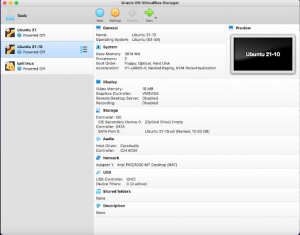Essential Work Habits
SCADA SYSTEMS
Emmanuel Agyei
11 November, 2020
As we move forward in the modern world, there are so many vulnerabilities and threats that affect our critical infrastructure. According to the Department of Multimedia Engineering, critical infrastructure is a term used to describe infrastructure, systems and assets that are essential for the society and the economy. Furthermore, their infrastructure and assets sometimes have some vulnerabilities and threats. Some of their vulnerabilities have to deal with energy, transportation, public health and health care, lack of encryption, default configuration, chemical and hazardous material, policies and procedures and many more. In addition, the threats can be put under 3 groups, natural threats, human caused threats and accidental or technical threats.
The natural threats can be weather problems, earthquakes, tsunamis, volcanic eruptions and more. Next is the human caused threats, which can be cyber attacks, rioting product tampering, bombings and more. SCADA, Supervisory Control And Data Acquisition system plays a big role in observing, monitoring and controlling the whole cycle of business processes and data. It helps in the prevention of vulnerabilities and threats to Critical infrastructure. According to the article SCADA Systems, “Nearly all the control actions are automatically performed by the remote terminal units (RTUs) or by the programmable logic controllers (PLCs).” SCADA is very significant for industrial organizations because they help maintain efficiency, communicate systems issues to help mitigate downtime and also process data for smarter decisions.
Furthermore, the system is made to notify the operator if the product is showing any errors, the operator then stops the system and tries to find the cause of the problem. They are able to view this information through an HMI, this shows the operator whatever he/she needs to know to solve the problem and try to prevent it from happening again. Many companies and organizations use SCADA, they are arguably the most significant systems in modern industries. Some of these industries that use SCADA have to deal with energy, manufacturing, oil and gas, power, recycling, water, waste water, transportation food and many more.
GRADE: 10/10
- Ability to work methodically and is very detail oriented
- Eagerness to dig into technical questions and examine them from all sides
- Enthusiastic and highly adaptable
- Strong analytical and diagnostic skills
- Demonstrated skills in innovation and collaboration
- Keep a current understanding of vulnerabilities from the Internet
- Maintaining awareness and knowledge of contemporary standards, practices, procedures and methods
- Ability to get the job done
Soft Skills
SCADA SYSTEMS
Emmanuel Agyei
11 November, 2020
As we move forward in the modern world, there are so many vulnerabilities and threats that affect our critical infrastructure. According to the Department of Multimedia Engineering, critical infrastructure is a term used to describe infrastructure, systems and assets that are essential for the society and the economy. Furthermore, their infrastructure and assets sometimes have some vulnerabilities and threats. Some of their vulnerabilities have to deal with energy, transportation, public health and health care, lack of encryption, default configuration, chemical and hazardous material, policies and procedures and many more. In addition, the threats can be put under 3 groups, natural threats, human caused threats and accidental or technical threats.
The natural threats can be weather problems, earthquakes, tsunamis, volcanic eruptions and more. Next is the human caused threats, which can be cyber attacks, rioting product tampering, bombings and more. SCADA, Supervisory Control And Data Acquisition system plays a big role in observing, monitoring and controlling the whole cycle of business processes and data. It helps in the prevention of vulnerabilities and threats to Critical infrastructure. According to the article SCADA Systems, “Nearly all the control actions are automatically performed by the remote terminal units (RTUs) or by the programmable logic controllers (PLCs).” SCADA is very significant for industrial organizations because they help maintain efficiency, communicate systems issues to help mitigate downtime and also process data for smarter decisions.
Furthermore, the system is made to notify the operator if the product is showing any errors, the operator then stops the system and tries to find the cause of the problem. They are able to view this information through an HMI, this shows the operator whatever he/she needs to know to solve the problem and try to prevent it from happening again. Many companies and organizations use SCADA, they are arguably the most significant systems in modern industries. Some of these industries that use SCADA have to deal with energy, manufacturing, oil and gas, power, recycling, water, waste water, transportation food and many more.
- Excellent presentation and communications skills to effectively communicate with management and customers
- Ability to clearly articulate complex concepts both written and verbally
- Ability, understanding, and usage of active listening skills especially with customers
Solid Technical Foundation

- Understand architecture, administration, and management of operating systems, networking, and virtualization software
- General programming/software development concepts and software analytical skills
- Proficiency in programming in Java, C/C++, disassemblers, and assembly language and programming knowledge of two or more scripting languages (PHP, Python, Perl, or shell)
- Understanding of how the different type of firewalls and network load balancers work
- Deep understanding of how network routers and switches work
- Evaluate and design systems and network architectures
Detailed Knowledge of Key Technologies

- Open Source Applications
- Linux Operating Systems
- Microsoft Technologies
- Wireless Technologies
- Database Modeling
- Web Application Technologies
- Compiled and Interpreted Development Languages
- Network Implementation (Operational and Security)
- Telephony Technologies (Analog and IP)
- Social Engineering
- Physical Security